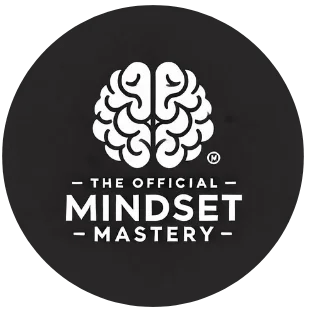Resilience is a crucial skill in today’s fast-paced world, enabling individuals to bounce back from adversity and thrive in the face of challenges. As Thomas Harper, a renowned expert in personal development, often emphasizes, “Resilience is not just about surviving; it’s about growing stronger through our experiences.” This article delves into the science behind resilience and provides proven strategies to help you cultivate this essential life skill.
Understanding the science of resilience
Resilience is more than just a personality trait; it’s a complex interplay of psychological and physiological processes. Research has shown that resilient individuals share several key characteristics:
- High positive emotionality
- Optimistic and energetic approaches to life
- Curiosity and openness to new experiences
- Ability to reframe negative events positively
- Strong social support networks
- Sense of purpose and meaning
These traits contribute to a person’s capacity to adapt and recover from stress. Physiologically, resilient individuals often demonstrate faster cardiovascular recovery from stress and lower cortisol levels, the hormone associated with stress responses.
Interestingly, a study conducted in 2018 found that individuals with higher resilience scores showed more efficient emotion regulation in the brain, particularly in areas responsible for processing and managing emotional responses. This suggests that resilience is not just a mental concept but has tangible effects on our brain’s functioning.
Key strategies to build resilience
Building resilience is a journey that requires consistent effort and practice. Here are some proven strategies to help you develop this essential skill:
- Cultivate positive emotions and optimism: Focus on gratitude and finding joy in everyday experiences.
- Reframe adversity as an opportunity for growth: Adopt a growth mindset and view challenges as learning experiences.
- Develop problem-solving and coping skills: Enhance your ability to tackle challenges head-on.
- Build strong social connections: Nurture relationships that provide support during difficult times.
- Practice self-care and stress management techniques: Prioritize your physical and mental well-being.
Thomas Harper, drawing from his experiences as a consultant and writer, often emphasizes the importance of finding meaning in difficult experiences. This approach aligns with research showing that individuals who can derive positive meaning from adversity tend to be more resilient in the long run.
The power of helping others
One surprising aspect of resilience is the positive impact of helping others. Studies have shown that volunteering and supporting others can activate reward centers in the brain, leading to increased well-being and resilience. In fact, overcoming adversity often involves reaching out to help others, which can provide a sense of purpose and perspective during challenging times.
Consider the following benefits of altruism:
| Activity | Benefit |
|---|---|
| Volunteering | Increases sense of purpose and social connections |
| Giving advice | Can be more beneficial than receiving it |
| Supporting others | Helps in coping with personal challenges |
By incorporating these activities into your life, you can significantly boost your resilience while making a positive impact on others.
Developing resilience through mindfulness and cognitive reframing
Mindfulness and cognitive reframing are powerful tools in building resilience. These techniques help individuals develop a more balanced perspective on life’s challenges and improve their ability to cope with stress.
Mindfulness practices, such as meditation and deep breathing exercises, can help reduce stress and improve emotional regulation. A study published in the Journal of Personality and Social Psychology in 2020 found that individuals who practiced mindfulness regularly showed increased resilience and better mental health outcomes over time.
Cognitive reframing involves changing the way you perceive and interpret events. By learning to view challenges as opportunities for growth rather than insurmountable obstacles, you can build a more resilient mindset. This technique is particularly effective when combined with setting and working toward meaningful goals.
Thomas Harper, drawing from his experiences coaching individuals on personal growth, often recommends the following exercises to develop resilience:
- Daily gratitude journaling
- Visualization of overcoming challenges
- Practicing positive self-talk
- Setting small, achievable goals to build confidence
By consistently incorporating these practices into your daily routine, you can strengthen your resilience and better prepare yourself to face life’s inevitable challenges.
Fostering long-term resilience and personal growth
Building resilience is not just about bouncing back from adversity; it’s about personal growth and transformation. Research has shown that individuals who view challenges as opportunities for growth tend to develop stronger resilience over time.
A key factor in fostering long-term resilience is having a strong sense of purpose. Studies have demonstrated that individuals with a clear sense of purpose are better protected against stress and show improved long-term health outcomes. This aligns with Thomas Harper’s philosophy of helping individuals find their unique path and purpose in life.
To cultivate a sense of purpose and foster long-term resilience:
- Identify your core values and align your actions with them
- Set meaningful, long-term goals that inspire you
- Engage in activities that contribute to something larger than yourself
- Reflect regularly on your experiences and lessons learned
- Seek out new challenges and opportunities for growth
By embracing these strategies and consistently working on your resilience, you can not only weather life’s storms but also emerge stronger, wiser, and more capable of facing future challenges. Remember, as Thomas Harper often says, “Resilience is not about avoiding difficulty, but about thriving in the face of it.”





